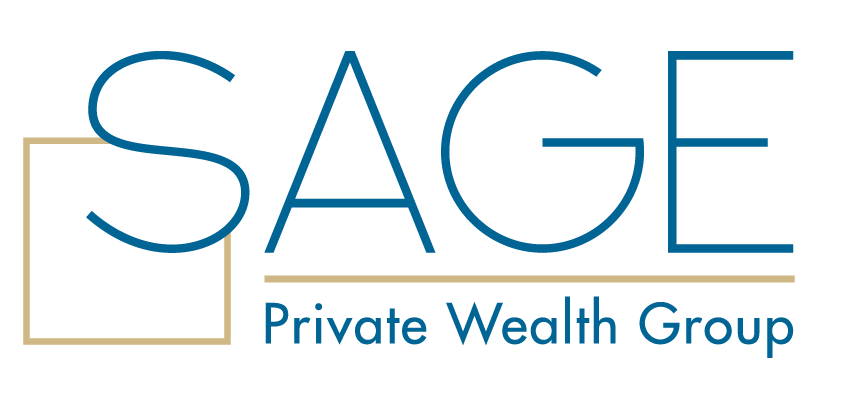By SAGE Private Wealth Group

Life can be full of tricky financial decisions. Should I pay off my student loans before saving for my retirement? Millennials and Gen Zs have grown up with an endless amount of information right at their fingertips, yet still admit to feeling unprepared when it comes to making decisions with their money. According to a study done by the TIAA Institute (Millennials and money: The state of their financial management and how workplaces can help them) Millennials represent the largest and most highly educated generation. All that education has come at quite a price tag with 43% of Millennials having some amount of student loans. Those loans represent the core of many financial worries for members of this generation with over 50% being concerned over how to pay that debt off. According to that same study 40% of Millennials have been offered financial literacy classes, but only 16% of Millennials would be considered financially literate. There is a disconnect in how we teach better financial habits and what resonates with our generation.
We are a generation that lives for experiences and craves authentic connections. This may explain why classroom financial literacy programs are a necessary first step but are not the full recipe for making a new generation confident in their ability to achieve their financial goals. Literacy should be the starting point. Having confidence to achieve their financial goals should be the aim. What would benefit Millennials and Gen Zs most would be the opportunity to work with a financial coach to develop and implement a successful financial plan.
What Exactly is a Financial Coach?

A financial coach is a trusted advisor that provides expertise and financial education for individuals to empower them to plan for their financial future. The best financial coaches are those that can listen to their clients’ needs with empathy, help create a strategy to meet the clients’ goals, and keep them on track to achieving their desired outcome. They also provide an objective/pragmatic insight into the best path forward. An integral characteristic of a financial coach is that they are active listeners. The coach should be able to fully grasp all aspects of the goal, the challenge in attaining it, and the underlying motivation pushing you forward. Active listening requires the coach to immerse themself in your ideas, concerns, and values so they can provide sound advice free of their own worldview or bias.
Empathy is crucial in a financial coach because it’s imperative that they understand why the goal is so important to you, but also what makes the road challenging to get there. Objectivity is equally vital as the advice a great coach provides is rooted in a disciplined, unemotional, and repeatable process. You may be thinking that your partner, parent, or spouse could serve in this role. Before enlisting them to serve as your partner in financial planning, consider if the existing relationship would allow them to provide objective and unemotional advice, or whether they are truly knowledgeable in financial planning. Parents, a spouse, or partner in conjunction with a financial coach serve as a powerful support system for you as you build and implement your financial plan.
Before you can start building a successful financial plan, it helps to understand what a financial plan is. In its simplest of terms, a financial plan is the combination of strategy and commitment to realize your financial goals. Mathematically we can express it as Strategy + Commitment = Goals. Could a financial plan involve complex investments? Sure, but investments are not a prerequisite for a financial plan. Financial planning requires you to be thoughtful about what you want to achieve, what you need to do to achieve it, and what level of commitment is required to meet this challenge. Realistic goals and a well-planned strategy are integral to the formula. In addition, a commitment to sticking with your defined plan is of equal importance to achieving your goals.
Let’s apply this to a real-life example:
Imagine you have a goal of paying off $8,000.00 in credit card debt.
You are currently paying off debt by making minimum monthly payments to chip away at the debt over time. Every month the debt has continued to grow due to a combination of an exceedingly high interest rate and minimum monthly payments. The debt is not only causing financial strain but taking a toll on your emotional and mental well-being.
When faced with mounting credit card debt, the average person may liquidate an emergency fund entirely, draw from their retirement savings, or remain in state of denial with the problem at hand.
Now let’s take this example and add in working with a Financial Coach:
Your empathetic financial coach listens and likens your credit card debt to a black hole that vacuums up all of your energy and is growing larger and larger. The future value of your goal is $0 in credit card debt. The present value of your goal is the current balance of debt. At this point you’re all too familiar with the high interest rate that accompanies this liability. It’s time to build a plan.
Step 1: Identify a Realistic Timeline to be Debt Free
Your financial coach and you identify a realistic time horizon of when you could be debt free. This requires objectivity, not only on the coach’s part, but also your own. To do this you look at your existing cash flow, any other debt obligations, and your current emergency fund (the cash or cash equivalents currently on hand). After some back and forth of what’s rational and what’s realistic, you determine that with a combination of your existing cash flow and a portion of your emergency fund, you could be debt free in three months.
You have identified your time horizon between Point A (present value of your debt) and Point B (future value of your debt = $0).
Step 2: Create a Strategy to be Debt Free within Defined Timeline
Your trusted financial coach creates an agreed upon strategy to use part of your existing cash flow (the money you make on a routine basis) and a portion of your cash on hand (checking and savings account) to get to Point B in three months.
To do this, it’s time to define a new budget. Your financial coach educates you on how to avoid being in this position in the future. By working with you to create a budget, a financial coach helps you to avoid unnecessary debt in the future while not only focusing on current debt obligations. The advice you receive from your financial coach is objective, but also empathetic, he/she wants to understand your spending habits and categorize what is non-discretionary versus discretionary spending. When you hear non-discretionary spending, think nonnegotiable expenses. These are the routine costs that you have to pay, such as rent/mortgage, utility payments, groceries, etc. Discretionary expenses are the costs that you have more control over and often times are what can lead to accumulating credit card debt. Your financial coach explains that discretionary spending is not inherently a bad thing and doesn’t recommend living an absolutely spartan lifestyle. The advice he/she gives helps to create a successful financial
plan that is based on knowing how much discretionary spending is appropriate based on your existing financial situation. By going through your non-discretionary and discretionary spending on a monthly basis, your financial coach and you can determine a more accurate budget that is workable within your lifestyle.
You have defined a practicable budget that reflects your non-discretionary and discretionary spending.
Step 3: Define a Strategy for Future Financial Health & Empowerment
At this point in developing the strategy to accomplish your financial goal, your financial coach challenges you to start thinking about what the next goal is that you’d like to achieve. The coach advises that if we’re committed to paying off this credit card debt by adhering to the budget, in three months you’ll be in a position to start funding for a new goal with the portion of the cash flow that would have otherwise gone to the credit card company. The reason for this brainstorming exercise is threefold:
- Emphasizes that financial planning is an ongoing experience
- Your goals are going to evolve as you grow
- Setting the next goal will keep you committed to the better financial habits you and your coach are developing
Once the strategy is implemented, your financial coach will monitor your progress and help you determine if/when the plan needs to be adapted.
You are reinforcing strong financial wellness habits by outlining future goals worth planning for.
Financial planning comes down to determining a goal you’d like to achieve, the strategy you implement, and your level of commitment in sticking with that strategy. Financial planning is not intended to be a solo venture. Your coach should be knowledgeable, empathetic, and objective in the advice he/she provides. Some goals will overlap and/or take higher priority than others. The aim of financial planning is it should be personal and reflect where you are at in life. There is no silver bullet to all challenges, but having a well-thought-out strategy, a high level of commitment, and a dedicated coach is a template that can breed success.
Look for upcoming articles as we tackle how to prioritize multiple goals with different time horizons. If you are interested in specific topics of financial planning or considering building a plan yourself, please feel free to contact us.
Financial Life Planning is an ongoing and collaborative process between SAGE and our clients. We help our clients create their lasting legacies by managing and preserving their wealth, and by providing a team of dedicated CERTIFIED FINANCIAL PLANNER™ (CFP®) professionals and freeing our clients to pursue noble intentions – to leave this world a better place, enrich the lives of all they touch and/or serve as a catalyst for the greater good.





